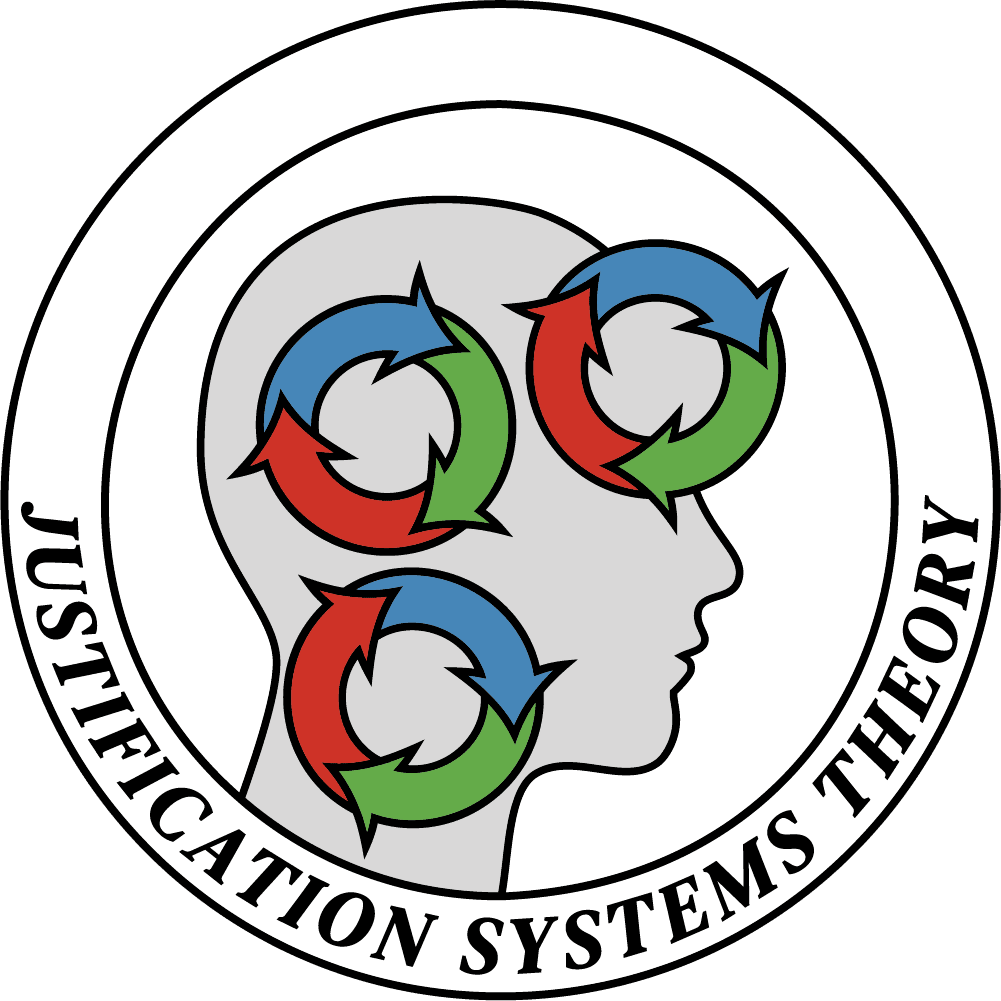Justification Systems Theory (JUST) is foundational to UTOK, offering insights into the evolution of human consciousness on the Culture-Person plane of existence. It serves as a bridge between the Mind and Culture planes within the Tree of Knowledge System, helping to explain human behavior and social systems.
What is Justification Systems Theory?
JUST is a metatheory that elucidates the evolution of human language, self-consciousness, and the structure and function of propositional thought and reason-giving in our sociocultural context. In essence, it explores what makes us distinctly human. JUST comprises three interlocking ideas:
1. The Justification Hypothesis
The Justification Hypothesis posits that the evolution of propositional language created an adaptive problem: justification. As language evolved to include propositions, it also generated questions, necessitating mechanisms to determine the accuracy and value of these propositions. This feedback loop led to the evolution of human consciousness and the emergence of the Culture-Person plane of existence.
The hypothesis suggests a tipping point in the evolution of language where propositions and questions became linked. This linkage created a complexity-building feedback loop, wherein individuals had to justify their beliefs to themselves and to others. This process was crucial in developing self-consciousness and the sophisticated social dynamics characteristic of human societies.
2. The Updated Tripartite Model (UTM)
The Updated Tripartite Model (UTM) frames the need to justify one's thoughts, feelings, and actions as the quest for a justified state of being. According to UTOK, human consciousness evolved to achieve this justified state through dynamic relations among:
Experiential Self: Primary experiences as a primate, representing our immediate, non-reflective experiences.
Private Self (Ego): Private justifications or narration, involving the inner dialogue that interprets and justifies experiences.
Public Self (Persona): Publicly presented self, encompassing the roles and images we project in social contexts.
The regulatory structures between these levels of consciousness are known as "filters," which include:
Attentional Filter: Governs what aspects of experience we focus on.
Freudian Filter: Influences the dynamic between conscious and unconscious processes.
Rogerian Filter: Shapes self-concept and conditions of worth.
These filters mediate the interactions between our experiential, private, and public selves, guiding how we perceive and justify our existence.
3. Justification Systems
Humans are socialized into systems of justification, which are language-based networks of beliefs. These systems include factual claims and value judgments, linked through investment and influence dynamics. Justification systems operate at both individual (egoic) and large-scale cultural levels, encompassing various belief value systems such as science, religion, law, and politics.
Justification systems are characterized by:
Beliefs about Facts: Propositions about the state of the world, informed by empirical evidence or logical reasoning.
Values and Norms: Prescriptions about what ought to be, shaped by cultural, ethical, and moral frameworks.
Behavioral Investment Theory: Explains how individuals allocate their time and energy based on perceived costs and benefits.
Influence Matrix: Describes the social dynamics of power, status, and affiliation.
These systems are crucial for maintaining social order and coherence, guiding how individuals and groups navigate complex social environments.
Importance in the Unified Theory of Knowledge
JUST is pivotal in UTOK as it provides a framework for understanding the evolution and function of human consciousness. It introduces the Updated Tripartite Model, which divides human consciousness into three domains (experiential, private narrator, public self) and three filters (attentional, Freudian, Rogerian).
The theory extends its relevance to:
Behavior Investment Theory: Mapping how humans invest their behavior based on perceived returns, risks, and social contexts.
Influence Matrix: Understanding social influence dynamics, such as how individuals and groups exert and respond to power and social pressures.
Tree of Knowledge System: Situating JUST within the broader UTOK framework, connecting scientific knowledge with subjective experience, and providing a comprehensive map of human development and evolution.
Applications of Justification Systems Theory
JUST has wide-ranging applications across various domains:
1. Psychological Well-being and Mental Health
JUST provides a framework for understanding the psychological processes that underpin mental health. By recognizing the importance of justification in human cognition, therapists can help clients reframe their narratives, aligning their private and public selves in healthier ways. This alignment can mitigate cognitive dissonance and promote mental well-being.
2. Sociocultural Analysis and Change
JUST offers tools for analyzing cultural dynamics and the evolution of societal norms. By understanding how justification systems operate, sociologists and anthropologists can trace the development of cultural practices and values. This analysis can inform policies and interventions aimed at fostering more cohesive and equitable societies.
3. Education and Learning
JUST underscores the importance of teaching critical thinking and reason-giving skills. Educators can design curricula that emphasize the development of justification systems, helping students articulate their thoughts and engage in constructive dialogue. This approach fosters a more reflective and informed citizenry.
4. Organizational Development and Leadership
In organizational contexts, JUST can guide the development of cultures that value transparency and accountability. Leaders can use the principles of justification to foster environments where employees feel valued and understood, promoting engagement and productivity.
Key Concepts in Justification Systems Theory
Propositional Thought: The ability to form and evaluate propositions, which is central to human reasoning and communication.
Self-Consciousness: The awareness of oneself as an individual, capable of reflecting on one's own thoughts and actions.
Cultural Norms: Shared beliefs and values that guide behavior within a society.
Epistemic Rationality: The pursuit of truth and knowledge through reasoned argument and evidence.
Ethical Justification: The process of defending moral principles and actions based on ethical reasoning.
Links & Resources





